The Phoenix is a proposed mixed-use, sustainable neighbourhood on a former industrial site in Lewes, a historic market town within the boundaries of England’s South Downs National Park. Planned around the principle of the five-minute neighbourhood, in which most daily needs can be met within a short walk, the Phoenix will be unlike any other development in the UK – and among the most sustainable in Europe.
At the heart of the neighbourhood will be a series of public squares containing workspaces and creative makers’ studios, a fitness and activity centre, a hotel, nightclub, taproom, community canteen and event space for public use. The site will also contain a nursery and Health Hub, as well as more than 650 homes – many at affordable level, including some at social rent – of different types and sizes, enabling a diverse community to grow. Shared courtyards, parks, green corridors and rooftop gardens will promote social interaction, communal living and increase biodiversity.
A Mobility Hub, at the southern end of the site, will contain parking spaces for residents and house an electric car and bike hire service (with vehicles ordered by an app) resulting in streets that are gentle, safe and mostly car free. The Phoenix will feature a new pedestrian bridge, cycle route and riverside walk, which will open up a part of the Ouse that has been inaccessible for decades (as well as a boat club and launch point for small vessels). Streets, safe for walking, cycling and children playing, will take inspiration from the Lewes’ famous twittens (narrow passages).
Waste will be minimised from the outset, with three industrial structures upcycled to provide community space, and all other construction materials reused or recycled, either for new buildings or as ‘cut and fill’ to level the site. The use of cross-laminated timber, chalk, hemp, rammed earth and local timber will mean buildings on the Phoenix will be carbon neutral, or even carbon positive.
Residents will share space, amenities, ideas and objects, making it easy to lead low-impact lives (towards a 'fair share' of 2.3 tons of CO2 per person per year). A repair cafe and ‘library of things’ will help tackle a culture of overconsumption, while a neighbourhood compost scheme will be at the heart of a circular economy where food waste is composted and used in a productive urban farm.
We intend for the Phoenix to be a benchmark scheme that acts as an exemplar for future developments both in the UK and abroad, encouraging others to take inspiration through open-source initiatives. It will demonstrate that sustainable materials can be used at scale, that developments can increase biodiversity and that there is a wide appetite for places that enable easy, communal and low-impact lives. Many aspects of the Phoenix will represent a radical departure from the norm in the UK – most notably, the move away from reliance on private cars. These lifestyles will be enabled by world-class services, such as a car-share app and on-site recycling, composting, urban farming and other waste management facilities. The Phoenix will show that these components can come together to create a neighbourhood for everyone, of all ages and all walks of life. A Headline Economic Impact paper has revealed that more than 300 jobs will be created by the development.
"The Phoenix project promises the development of a new neighbourhood as an alternative to the planning norm in the UK, not only by moving away from the reliance on private cars. The project seeks to demonstrate that sustainable materials can be used at scale, that developments can increase biodiversity and that there is a real appetite for places that enable easy, communal and low-impact lives. The plan, developed through a cohesive process, features car-sharing, on-site recycling, composting, urban farming and other waste management facilities. If all these promising ambitions are turned into reality by Human Nature, it will indeed be an achievement for more ambitious neighbourhood thinking - and doing - in the UK and beyond."
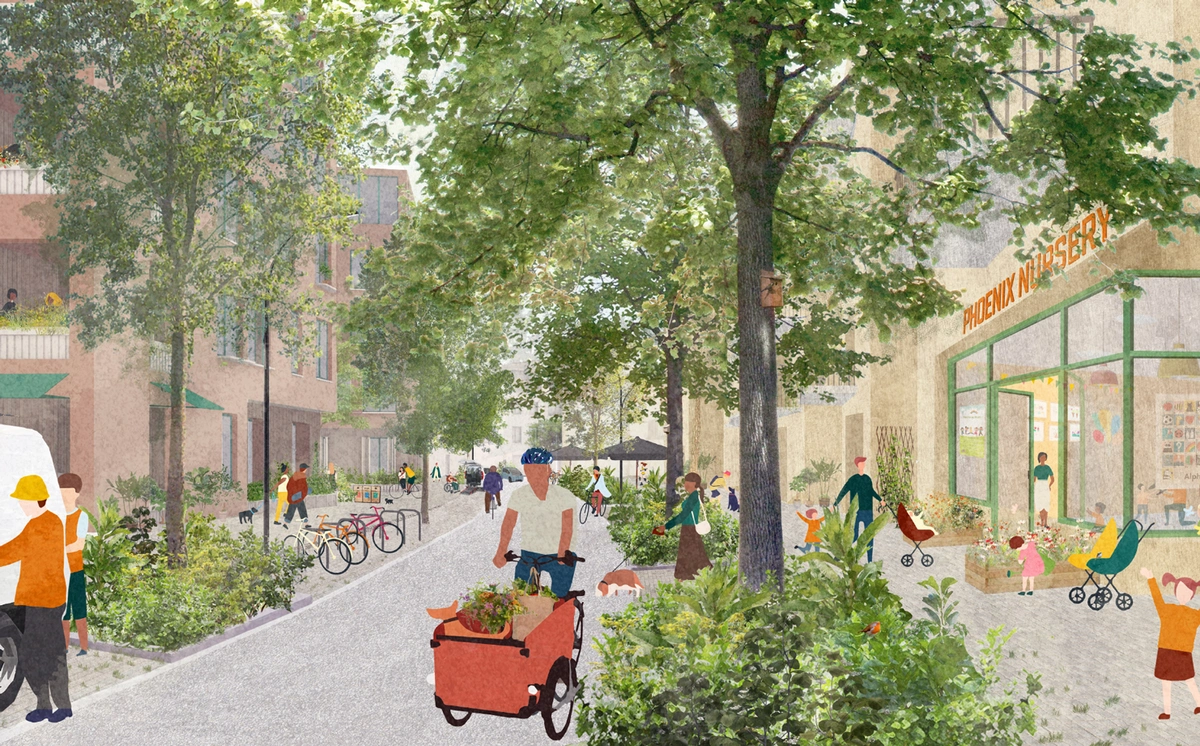
North Street looking north towards Pells Pool. The Phoenix will create interesting juxtapositions (particularly of building, street and greenery) and abundant public space, especially safe, relaxing streets and generous footways, leading to active life between buildings.
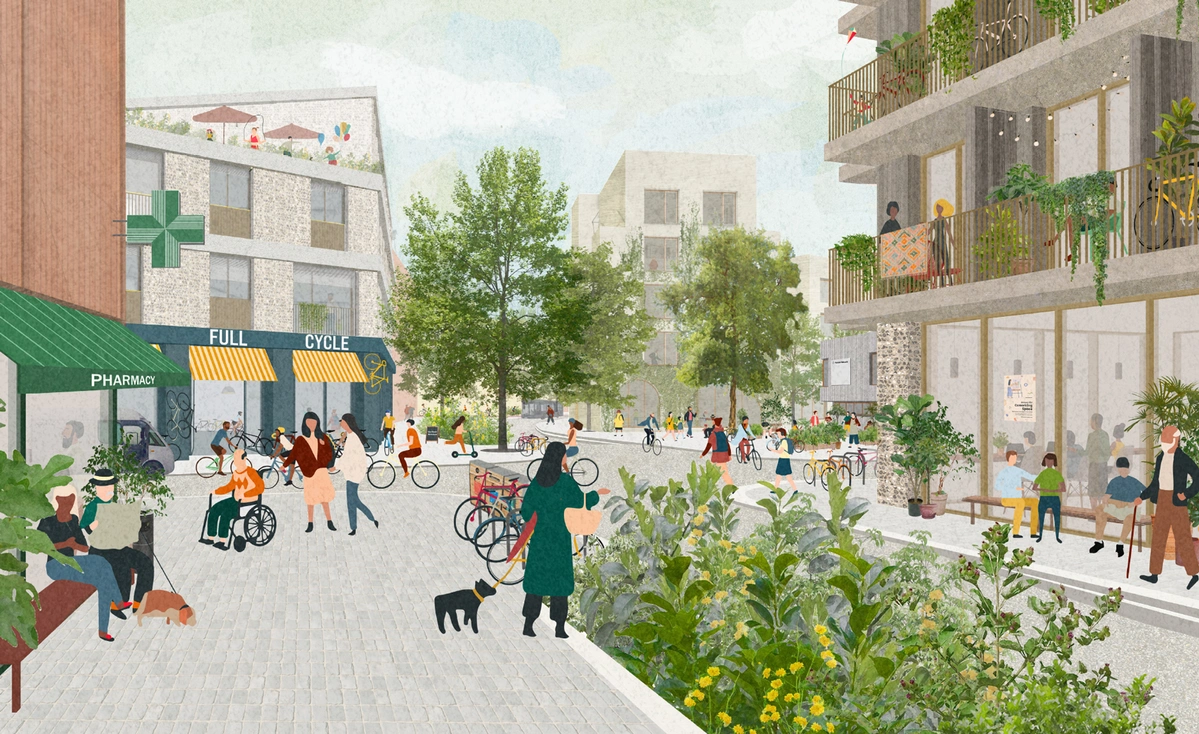
Phoenix Square looking east towards Phoenix Place. Street trees, urban farming and general ecological enhancement achieved by the combination of strategic, tactical and personal public realm and planting typologies will green the Phoenix.
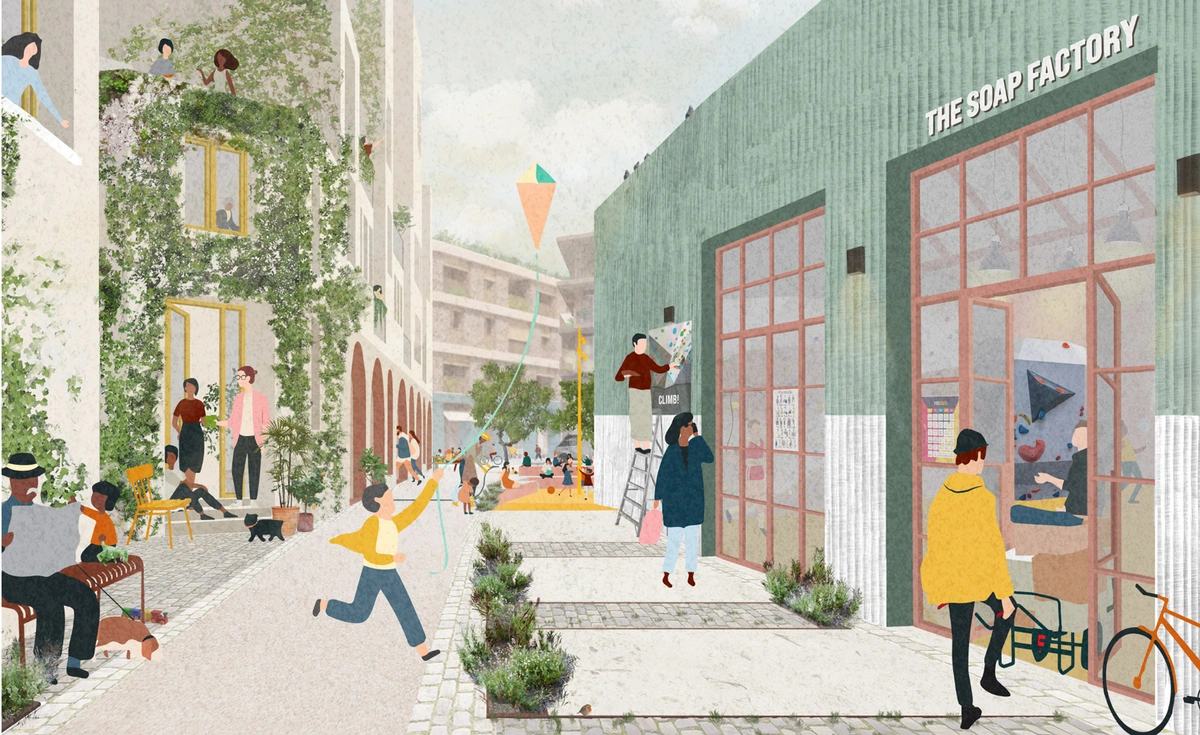
The Soap Factory looking north towards the centre. The Phoenix will be a humane, social and super-sustainable living and working environment with what is perhaps a new aesthetic and even typology for places that are deeply green yet urban.
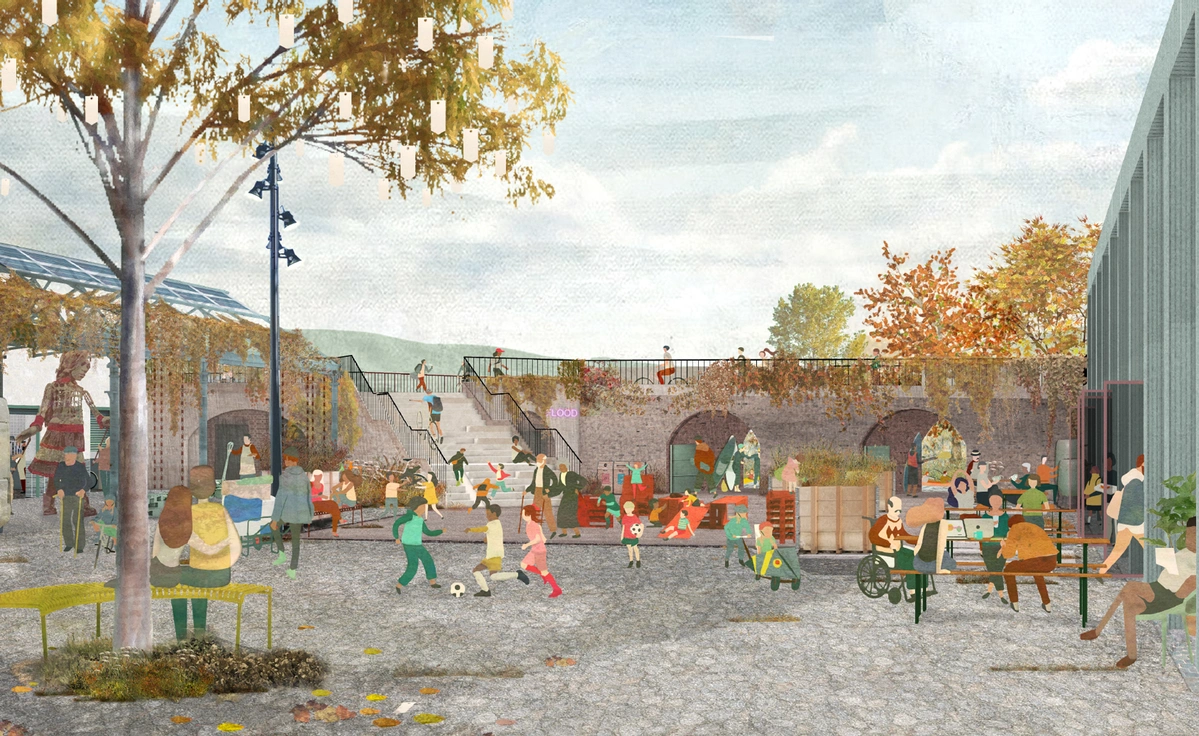
The Foundry Yards flanked to the north and south-east by the regenerated Foundry workshops (for makers and creatives of all kinds) and Community Canteen and Club and to the north and south-west by the new events, meetings and arts space and elevated garden – the belvedere - on the Ouse walk.
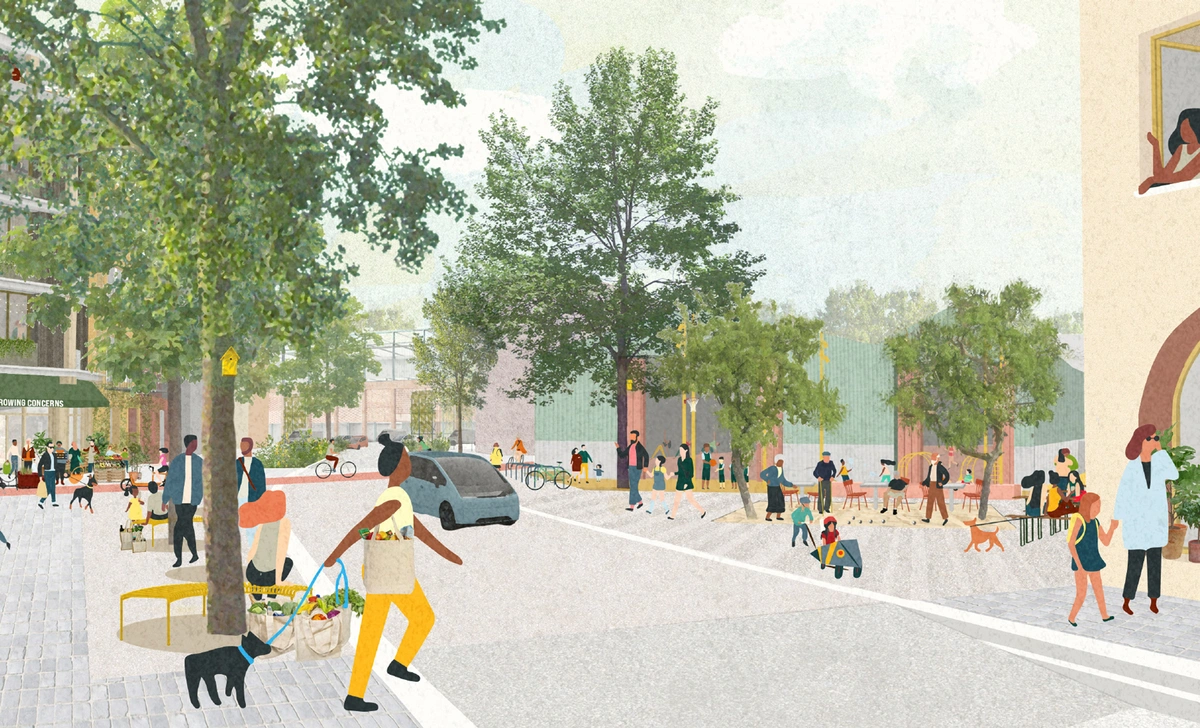
Soap Yard, Phoenix Place and Mobility Hub, which will contain parking spaces for residents and house an electric car and bike hire service (with vehicles ordered by an app).
Human Nature is designing and building new neighbourhoods where it is easy and enjoyable to live a low-impact life. Bringing together outstanding teams working in architecture, regenerative urbanism, sustainable construction and renewable energy, we create elegant and exceptional places with a focus on sharing more in a communal and sociable environment. Human Nature was founded in 2015 by Jonathan Smales and Michael Manolson, two former Greenpeace directors. It grew out of Beyond Green, a leading UK consultancy in sustainable development. On the Phoenix, we are working with several architectural practices, including Mae, Adam Richards Architects, Material Cultures; masterplan co-ordinator, landscape architects and buildings architects Periscope; environmental engineers Atelier Ten and urban designer Kathryn Firth, among others.
